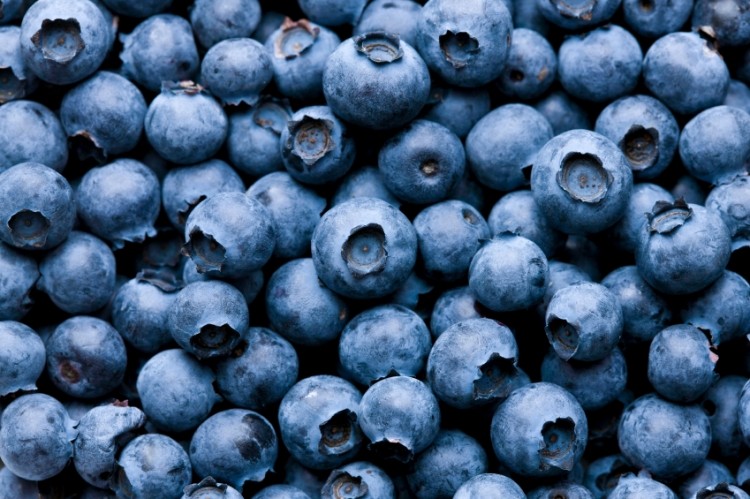10 studies from Experimental Biology that caught our eye Part 1: Vitamins K2 & D, berries and green tea

The studies here looked at specific demographic population groups: obese African-Americans, aging people, Latinos at risk for diabetes, post-menopausal women, and individuals with Metabolic Syndrome. Here are some highlights:
Effect of Vitamin D3 Supplementation on Telomerase Activity in Hispanics with Type 2 Diabetes
Short telomeres are associated with cell senescence and apoptosis. Low telomerase activity is also linked to type 2 diabetes and mortality. According to dietetics and nutrition scientists at the Florida International University in Miami, there is a trend among the Latino population to have shorter telomere lengths.
The researchers investigated whether daily vitamin D3 supplementation at 4000 IU can increase telomerase activity over time in Latinos with type 2 diabetes and vitamin D deficiency. Thirty-four participants were recruited that fit the research criteria, and were given the supplementation for six months.
“Vitamin D3 supplementation at 4000 IU/day significantly increased telomerase activity in Hispanics with type 2 diabetes,” the researchers wrote, though there were no statistically significant changes in telomerase activity levels from the beginning of the trial to 3 months.
“Vitamin D3 supplementation may prevent/delay disease progression in type 2 diabetes through telomerase re-activation and maintenance of DNA. Larger randomized controlled trials are needed to confirm these results in this and other racial/ethnic groups,” they concluded.
Study title: Effect of Vitamin D3 Supplementation on Telomarese Activity in Hispanics with Type 2 Diabetes
Authors: Gustavo G. Zarini, Michael McLean, Joan Vaccaro, Joel Exebio, Sahar Ajabshir and Fatma G. Huffman
Strawberries may benefit cognitive function during aging
Based on a previous study that found improvements in mobility and cognition observed among strawberry-supplemented aged rats, researchers from the USDA and Tufts University hypothesized that dietary supplementation with strawberry would also benefit older adult humans.
The study was funded by the California Strawberry Commission, and involved supplementing either 24 g per day of strawberry or a placebo powder on healthy older men and women. Motor and cognitive ability were assessed at days 0, 45, and 90 of supplementation.
Researchers noted improvements in hippocampally-mediated word recognition and spatial memory compared to the placebo, but no effects on mobility were observed.
Study title: Dietary Strawberry Improves Cognition in Older adults: A Randomized, Double-Blind, Placebo-Controlled Trial
Authors: Marshall G Miller, Nopporn Thangthaeng, Tammy M. Scott and Barbara Shukitt-Hale
Green Tea Extract Supplementation Modifies Circulating Lipids in Postmenopausal Women
In a randomized, placebo-controlled clinical trial, researchers observed the effects of daily green tea extract supplementation high in epigallocatechin gallate for 12 months on blood lipids in healthy postmenopausal women in the US.
Participants were mainly non-Hispanic white who did not regularly consume tea and had a mean body mass index of 25.1. Each woman took two capsules of green tea extract or placebo twice daily for one year.
“One-year supplementation wit green tea extract capsules resulted in significant reduction of circulating total cholesterol (by 2.1%), low density lipoprotein cholesterol (4.1%), and non-high-density lipoprotein cholesterol (by 3.1%),” the researchers observed.
Study title: Green Tea Extract Supplementation Modifies Circulating Lipids in Postmenopausal Women: A Randomized, Placebo-Controlled Clinical Trial
Authors: Hamed Samavat, April Rose, Allison Dostal, Renwei Wang, Anna Wu, Jian-Min Yuan, and Mindy Kurzer
Vitamin K2 may improve lipid profile in obese African-American children
Researchers from the University of Alabama-Birmingham and the Georgia Prevention Institute delved deeper into the recent focus on vitamin K2 (menaquinones) as a nutrient improvement in lipid related abnormalities.
They conducted a randomized controlled trial on 15 obese African-American children, and found that the amount of lipids (total cholesterol and triglycerides, among others) in the menaquinone supplemented group had a significant downward trend compared to the placebo group.
“Our study provides the rationale that larger intervention trials are needed to determine whether vitamin K2 supplementation slows atherosclerosis development by increasing MGP carboxylation,” the researchers added.
Study title: Menaquinone-7 Supplementation Improves Lipid Profile in Obese African-American Children: A Randomized Controlled Trial
Authors: Norman K. Pollock, Joshua Nguyen, Mary Ellen Fain, Barbara A. Gower, Reda Bassali, and Catherine L. Davis
Blueberries modulates immune cell levels in adults with Metabolic Syndrome
Anthocyanin-rich blueberries have been found to improve mitochondrial integrity, inflammation, and redox status. Researchers from the Louisiana State University and Pennington Biomedical research Center in Baton Rouge, LA, conducted a placebo-controlled study to investigate the role of blueberries in modulating cellular humoral factors in subjects with metabolic syndrome.
Study participants received a blueberry or placebo smoothie twice daily for six weeks. Free radical production in the whole blood and mon9ocytes,dendritic cells measurement, gene expression levels of cytokines in monocytes, and serum inflammatory marker levels were assessed before and after the intervention.
At the conclusion of the study, researchers found that blueberries modulate immune cells and attenuate oxidative stress and inflammation in the blood of Metabolic Syndrome patients.
Study title: Blueberry supplementation attenuates oxidative stress within the monocytes and modulates immune cell levels in adults with Metabolic Syndrome
Authors: Anand R. Nair, Nithya Mariappan, April J. Stull, Joseph Francis



















